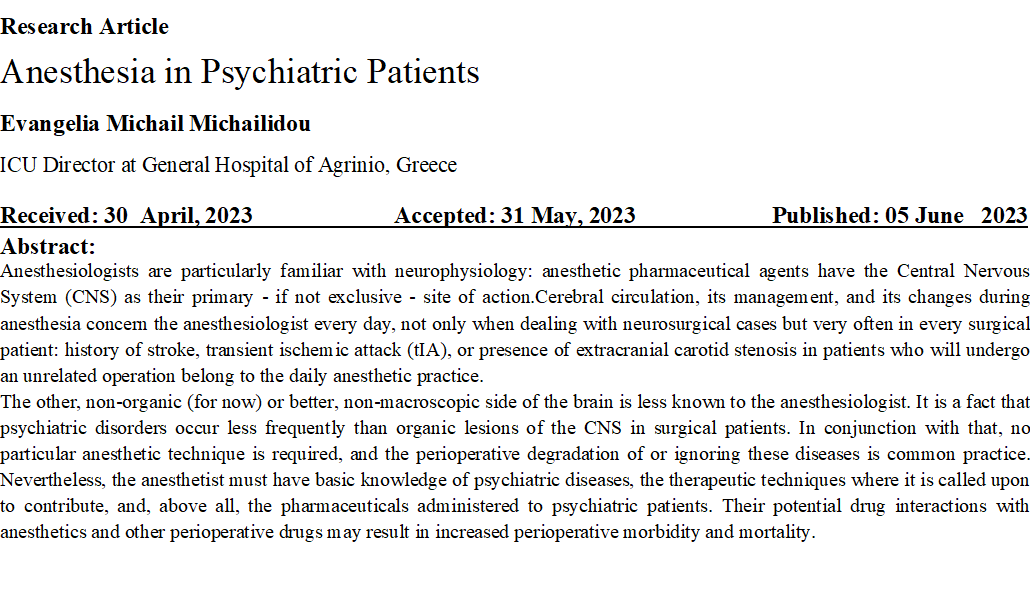Anesthesia in Psychiatric Patients
Clinical Medicine And Health Research Journal,
Vol. 3 No. 3 (2023),
5 June 2023
,
Page 424-427
https://doi.org/10.18535/cmhrj.v3i3.182
Abstract
Anesthesiologists are particularly familiar with neurophysiology: anesthetic pharmaceutical agents have the Central Nervous System (CNS) as their primary - if not exclusive - site of action.Cerebral circulation, its management, and its changes during anesthesia concern the anesthesiologist every day, not only when dealing with neurosurgical cases but very often in every surgical patient: history of stroke, transient ischemic attack (tIA), or presence of extracranial carotid stenosis in patients who will undergo an unrelated operation belong to the daily anesthetic practice.
The other, non-organic (for now) or better, non-macroscopic side of the brain is less known to the anesthesiologist. It is a fact that psychiatric disorders occur less frequently than organic lesions of the CNS in surgical patients. In conjunction with that, no particular anesthetic technique is required, and the perioperative degradation of or ignoring these diseases is common practice. Nevertheless, the anesthetist must have basic knowledge of psychiatric diseases, the therapeutic techniques where it is called upon to contribute, and, above all, the pharmaceuticals administered to psychiatric patients. Their potential drug interactions with anesthetics and other perioperative drugs may result in increased perioperative morbidity and mortality.

How to Cite
Download Citation
References
- Article Viewed: 0 Total Download


